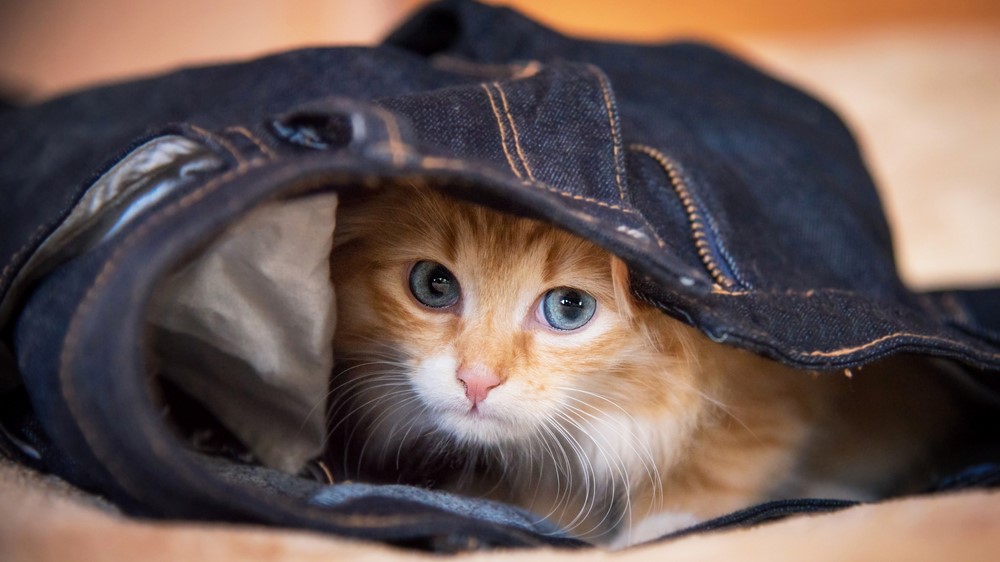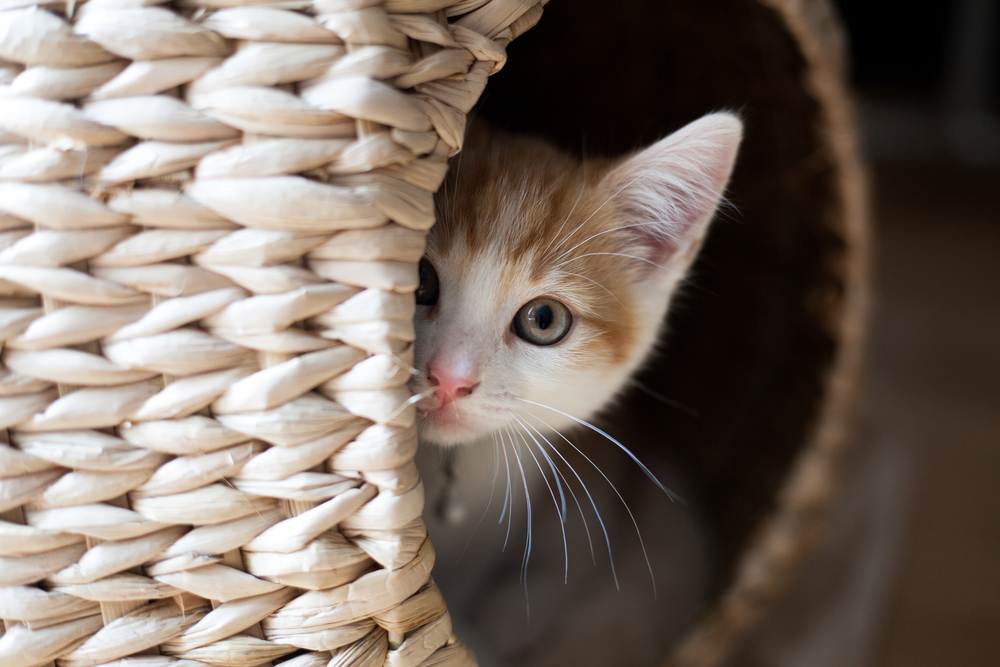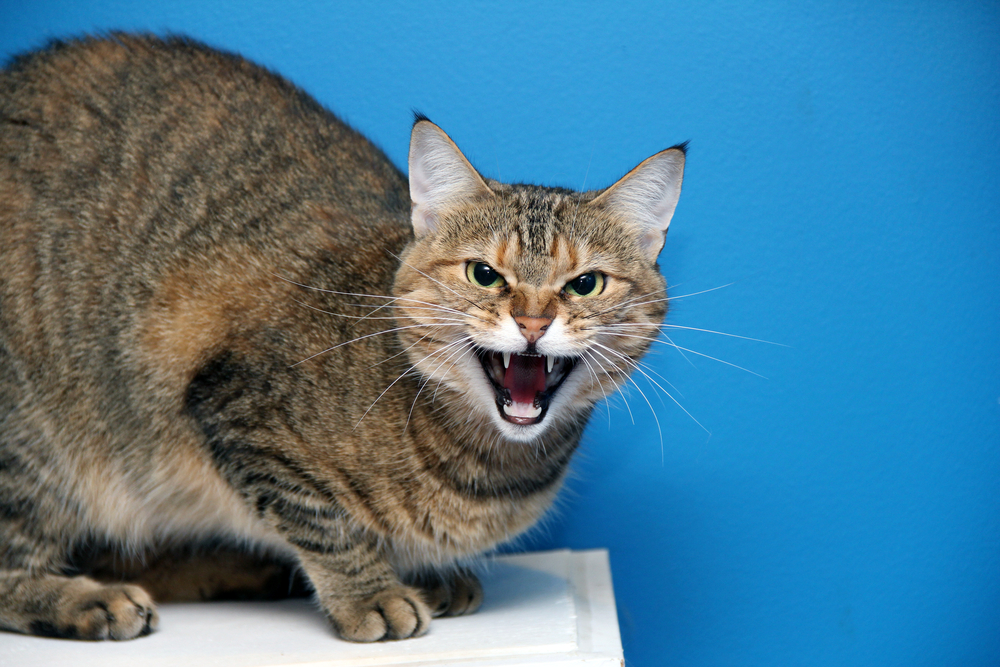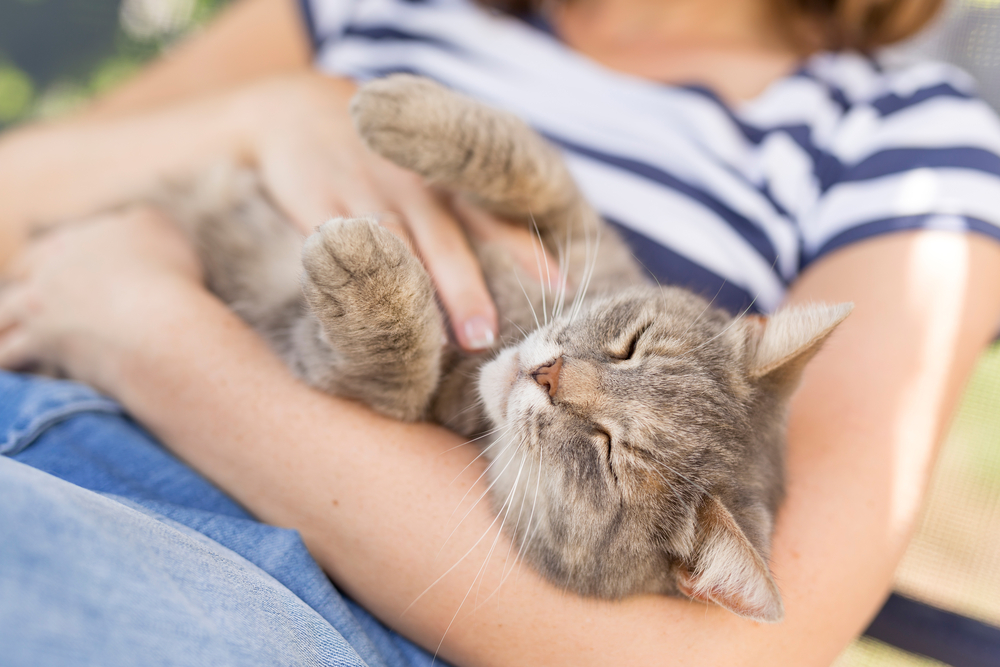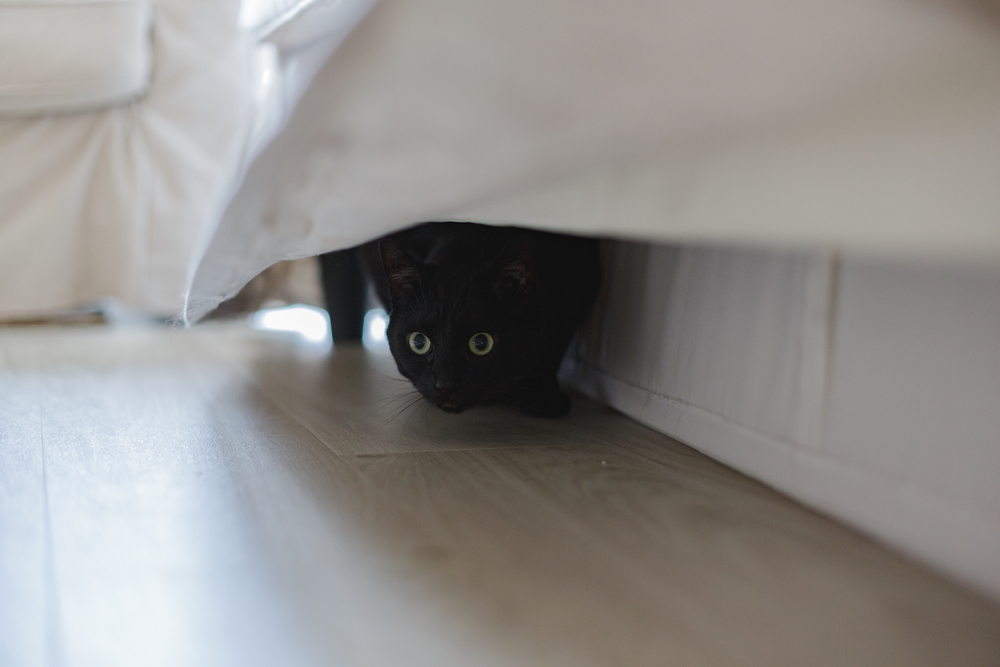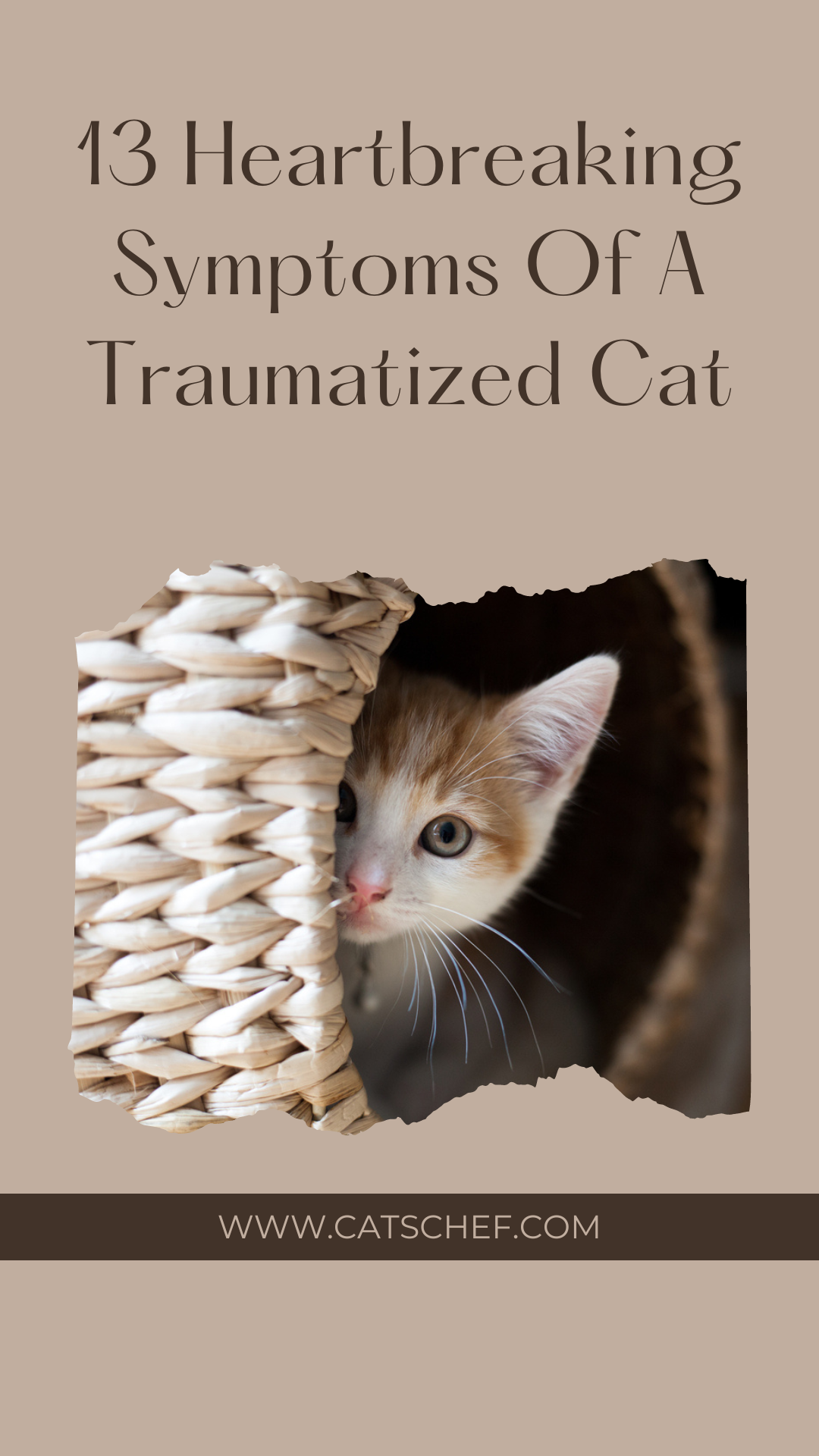📖 Table of Content:
- 1. Constant hiding and seeking safe places
- 2. Destructive behavior
- 3. Aggressiveness
- 4. Hypervigilance
- 5. Excessive vocalization
- 6. Change in appetite and sudden weight loss
- 7. Being uninterested in playing or interacting with people or other pets
- 8. Seeking constant attention and being overly attached
- 9. Changes in sleep routine
- 10. Doing her business outside the litter box
- 11. Unexplained mood swings
- 12. Constant state of fear
- 13. Pacing around the house
Experiencing and healing from a traumatic event is not only reserved for humans. Unfortunately, our feline companions go through this, too.
That experience can come as a result of a fight with another cat, being physically or mentally abused by an owner, being separated from their mother too early, or being neglected far too often.
But, how can you as a loving and devoted cat parent know for sure your fluffball has gone through trauma in the past? Well, we can sure help you with that!
Here are the 13 most common symptoms of a traumatized cat you should keep an eye on.
1. Constant hiding and seeking safe places
The first and most obvious sign a cat is traumatized and under a lot of stress is when she’s constantly hiding from her owner and seeking safe places. Her hiding usually takes hours, and sometimes can even be manifested in her running away from home and hiding somewhere for weeks on end.
It all depends on how traumatic a certain event was for her. If she’s afraid of taking a bath, she might hide somewhere inside her home, like a closet, and come out after a couple of minutes or more. But, if she was attacked or felt threatened by another animal, her hiding can be prolonged – for as long as the threat is near.
2. Destructive behavior
Felines that have experienced a traumatic experience may start to worry even when there’s no reason to worry at all. Their anxiety about anything and everything frequently leads to destructive behavior, which often includes:
- scratching furniture
- eating non-edible items
- destroying toilet paper
- digging up the soil in potted plants
- excessive kneading
- excessive self-grooming
This kind of behavior is usually the most obvious sign that something is not quite right. It’s an indicator that she’s struggling mentally and emotionally, trying to cope with her surroundings full of stressors.
Feline’s destructive behavior usually ends up in destroyed furniture, plants, or the owner’s personal stuff. However, it’s important to note that the cat is not doing this out of revenge, but because she’s truly under a lot of stress and just trying to soothe herself.
3. Aggressiveness
A traumatic experience of any nature can leave a cat acting overly aggressive and constantly feeling on edge. Traumatic abuse of any kind stays forever ingrained in a kitty’s brain, and can result in her being excessively defensive and hostile towards others.
A traumatized cat may be aggressive and defensive even though her owner is exceptionally cautious and gentle. That’s because she has a hard time distinguishing good intentions from bad.
4. Hypervigilance
Anger or aggression issues and hypervigilance go hand in hand in cases of cats with PTSD. A cat that is stressed out is almost always on the lookout, trying to be one step ahead of any potential threats.
This cat is very sensitive to sounds, movements, or any type of change in her environment.
5. Excessive vocalization
Some cat breeds are just more vocal than others. But when a feline is unusually vocal and constantly meows or yowls, that can be a sign that she is currently under a lot of stress.
Other voices that a distressed kitty can produce are trills, chirps, and chirrups. All of these sounds are usually unprovoked – they are just a reaction to traumatic memories the cat has.
6. Change in appetite and sudden weight loss
A feline with PTSD will almost always have a sudden change in appetite. Because she’s under a lot of stress and anxiety, her body is in a constant state of fight or flight, and she’s focused more on surviving and escaping her predators, than on any food her owner gives her.
This can often result in noticeable weight loss, sometimes to the point where her bones are visible.
7. Being uninterested in playing or interacting with people or other pets
Another common sign a cat is dealing with the remnants of trauma is low energy levels. Because of all the stress that she’s dealing with, she’s constantly feeling under the weather, and she can’t focus on many things, especially playing or interacting with her owners or other pets.
8. Seeking constant attention and being overly attached
When my kitty was attacked by an older tomcat, which resulted in an emergency vet procedure, she became very timid and exceptionally needy. She hardly ever left my side and was always lying either on me or near me.
It is completely normal for a distressed feline to seek love, comfort, and protection in the arms of her favorite human. In her eyes, her trusty owner is her greatest protector who wishes no harm to ever fall upon her.
9. Changes in sleep routine
If humans can have trouble falling and staying asleep during the night after a certain traumatic event, so can their fluffy friends.
A feline with PTSD may have trouble getting enough rest. She might even be wide awake every night, roaming around the house, making a mess, and indulging in her night zoomies.
10. Doing her business outside the litter box
A traumatized feline can also have trouble with bladder control, and uncontrollably and inappropriately urinate somewhere outside her litter box, like on the couch for example. Besides urinating, she may also be pooping in unusual places.
11. Unexplained mood swings
Another sign a feline is severely traumatized is if she’s having intense and unexplained mood swings. One moment she can be all fun, loving, and playful, and the next she can turn into an angry, aggressive, and extremely defensive fur-monster.
These mood swings are confusing and most of the time we don’t understand them at all but rather attribute them to simple feline nature. “That’s just cats being cats – selfish and rude” is something we tend to say.
But in reality, it’s actually them fighting their inner battles and dealing with the traumatic experience they’ve been through.
12. Constant state of fear
A feline that’s been through a lot of trauma can become extremely fearful. This frequently manifests itself in her trembling or shaking, and generally being easily startled, even by something as simple as a sneeze.
Another indicator a kitty is scared is if she’s shedding a lot more than usual. She may also deal with other skin or health-related issues as a result of a traumatic experience.
13. Pacing around the house
You know how people when they’re stressing out tend to aimlessly walk around? It’s almost like going in circles is somehow providing them with peace and calming their nerves. Well, cats do it, too!
For a distressed kitty, pacing is a common way to show her owner she’s anxious. This means that she’s in desperate need of relaxation and craves some kind of stress relief.
